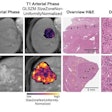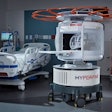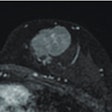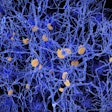Gender appears to affect how long it takes someone to recover from a concussion, according to diffusion-tensor MRI (DTI-MRI) results. Young men demonstrated longer recovery times than women in a study published online May 6 in Radiology.
Men took more than twice as long to recover from a mild traumatic brain injury than women, regardless of the initial severity of symptoms, researchers from the University of Pittsburgh School of Medicine found.
The average time to symptom recovery for all concussion patients in the study was 54 days. However, it took male patients an average of 66.9 days to recover, compared with 26.3 days for female patients (Radiology, May 6, 2014).
"Diffusion-tensor imaging is the first imaging technique that shows abnormalities associated with concussion because it is able to see white-matter tracts at a microscopic level," said co-author Dr. Saeed Fakhran, assistant professor of neuroradiology, in a statement.
By measuring the movement of water molecules in the brain through fractional anisotropy, DTI-MRI can help distinguish healthy from damaged white matter. When flow is uniform, fractional anisotropy values are high; when water movement is more random, fractional anisotropy values are noticeably lower. Abnormally low fractional anisotropy values are associated with cognitive impairment in patients with brain injuries.
Fakhran and colleagues retrospectively studied 69 patients (47 men and 22 women) diagnosed with mild traumatic brain injury between 2006 and 2013. They also included 21 control subjects (10 men and 11 women) with normal MRI results. The median age of the men was 17 years, while the median age of the women was 16 years. Of the 47 men with a concussion, 32 (68%) were injured while playing a sport, as were 10 (45%) of the 22 women.
All subjects were imaged on a 1.5-tesla MRI scanner (Signa, GE Healthcare) and received a computerized neurocognitive test.
DTI-MRI showed that those with mild traumatic brain injury had abnormalities within the uncinate fasciculus (UF), a white-matter tract that connects the frontal and temporal lobes of the brain. It is thought that this tract allows temporal-lobe-based memory associations to modify behavior though interactions with another area of the brain.
Relative to gender, male patients with concussions had significantly decreased uncinate fasciculus fractional anisotropy values than their female counterparts.
Statistical analysis showed that UF fractional anisotropy values were a stronger predictor of recovery time than initial symptom severity based on neurocognitive testing, according to the researchers. The most substantial risk factor for a recovery time longer than three months was decreased UF fractional anisotropy.
The potential of DTI-MRI and UF fractional anisotropy to predict outcomes after concussion can have great clinical impact, especially for children participating in sports and professional athletes, Fakhran and colleagues concluded.
"Lower fractional anisotropy values in the uncinate fasciculi could offer a metric for evaluating the severity of mild traumatic brain injuries and predicting clinical outcome," Fakhran said. "We're not at the point where DTI can provide individual prognoses yet, but that's the hope and goal."

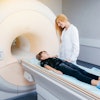
.fFmgij6Hin.png?auto=compress%2Cformat&fit=crop&h=100&q=70&w=100)


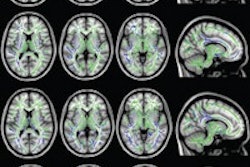
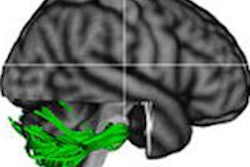
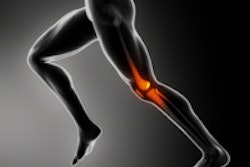
.fFmgij6Hin.png?auto=compress%2Cformat&fit=crop&h=167&q=70&w=250)


